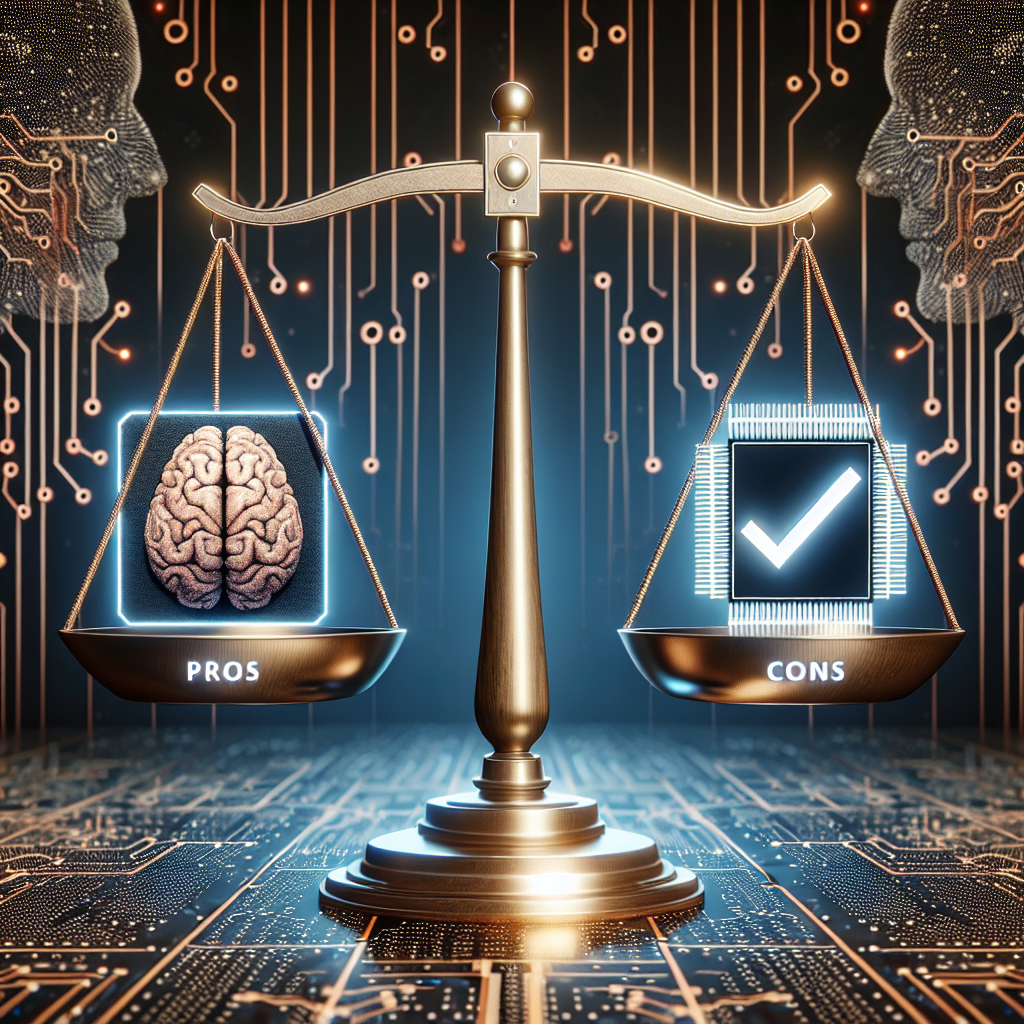Artificial General Intelligence (AGI) is a term used to describe a form of artificial intelligence that has the ability to understand, learn, and apply knowledge across a wide range of tasks and domains, much like a human being. While current AI technologies are specialized and limited in their capabilities, AGI has the potential to revolutionize industries, solve complex problems, and improve the quality of life for people around the world.
However, with great power comes great responsibility, and the development of AGI raises important ethical, social, and practical questions. Experts in the field of AI are weighing in on the potential benefits and risks of AGI, considering how it could impact society and shape the future of humanity.
In this article, we will explore the perspectives of leading AI researchers and ethicists on the potential benefits and risks of AGI, and address some frequently asked questions about this emerging technology.
Potential Benefits of AGI
1. Improved Healthcare: AGI has the potential to revolutionize healthcare by analyzing large amounts of data to identify patterns and make diagnoses more accurately and quickly than human doctors. This could lead to earlier detection of diseases, more personalized treatment plans, and improved patient outcomes.
2. Enhanced Education: AGI could personalize education by adapting to the learning needs and styles of individual students, providing tailored instruction and support. This could help students learn more effectively and efficiently, ultimately improving educational outcomes for all.
3. Increased Productivity: AGI could automate routine tasks and processes, freeing up human workers to focus on more creative and strategic activities. This could lead to increased productivity and innovation across industries, driving economic growth and creating new opportunities for employment.
4. Environmental Sustainability: AGI could help address pressing environmental challenges by analyzing data and predicting trends related to climate change, biodiversity loss, and natural disasters. This could inform policy decisions and interventions to protect the planet and ensure a sustainable future for generations to come.
5. Enhanced Communication: AGI could facilitate communication and collaboration across language barriers, making it easier for people from different cultures and backgrounds to connect and work together. This could promote understanding, empathy, and cooperation in a globalized world.
Potential Risks of AGI
1. Job Displacement: AGI could automate a wide range of jobs, leading to widespread unemployment and economic inequality. Workers in industries such as manufacturing, transportation, and customer service could be particularly at risk of losing their jobs to AI-powered systems.
2. Bias and Discrimination: AGI could perpetuate and amplify existing biases and discrimination in society, as it learns from historical data that reflects systemic inequalities. This could lead to unfair treatment of marginalized groups and reinforce social divisions.
3. Security and Privacy Concerns: AGI could pose risks to security and privacy, as it could be used to hack systems, manipulate information, and invade individuals’ personal data. This could lead to breaches of trust, identity theft, and other cybercrimes.
4. Ethical Dilemmas: AGI raises complex ethical questions about the rights and responsibilities of intelligent machines, as well as the implications of creating beings that may surpass human intelligence. Questions about consciousness, autonomy, and moral agency will need to be addressed as AGI becomes more advanced.
5. Control and Governance: AGI could pose challenges in terms of control and governance, as it may be difficult to predict and regulate the behavior of autonomous systems. Ensuring that AGI is developed and deployed responsibly will require international cooperation and coordination.
FAQs about AGI
Q: What is the difference between AGI and other forms of AI?
A: AGI is distinguished from other forms of AI, such as narrow AI and machine learning, by its ability to perform a wide range of tasks across different domains, much like a human being. While current AI technologies are specialized and limited in their capabilities, AGI aims to achieve general intelligence that can adapt and learn in diverse contexts.
Q: How close are we to achieving AGI?
A: The development of AGI is still in its early stages, and it is difficult to predict when or if AGI will be achieved. Some experts believe that AGI could be realized within the next few decades, while others are more skeptical about the possibility of creating truly intelligent machines.
Q: What are some ethical considerations related to AGI?
A: Ethical considerations related to AGI include questions about the rights and responsibilities of intelligent machines, the impact of AI on society, and the implications of creating beings that may surpass human intelligence. Ensuring that AGI is developed and deployed responsibly will require careful consideration of these ethical issues.
Q: How can we ensure that AGI benefits society?
A: To ensure that AGI benefits society, it will be important to prioritize ethical considerations, promote transparency and accountability in AI development, and involve diverse stakeholders in the decision-making process. Collaboration between researchers, policymakers, industry leaders, and the public will be essential to harness the potential of AGI for the greater good.
In conclusion, the potential benefits and risks of AGI are significant and complex, and it will be crucial for society to navigate these challenges thoughtfully and responsibly. By engaging in open dialogue, conducting rigorous research, and implementing robust safeguards, we can harness the power of AGI to improve lives, advance knowledge, and create a more equitable and sustainable future for all.

